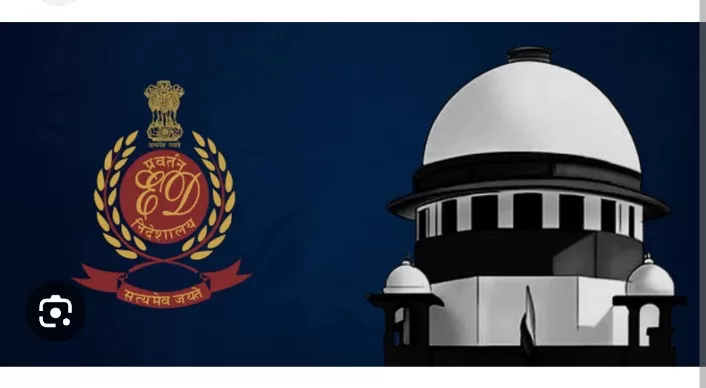In a recent landmark judgment on October 3, the Supreme Court issued directives to the Enforcement Directorate (ED) to provide written grounds for the arrest of accused individuals. Simultaneously, the court extended the agency the discretion to redact any “sensitive portions” that may be included in the document. This redaction is intended to preserve the integrity of ongoing investigations.
Furthermore, the apex court stressed that the ED should refrain from categorizing any response from individuals summoned for interrogation as an ‘evasive reply’ unless it amounts to a clear admission of guilt.
The court elucidated, “The grounds of arrest recorded by the authorized officer, in terms of Section 19(1) of the Act of 2002, would be personal to the person who is arrested, and there should, ordinarily, be no risk of sensitive material being divulged therefrom, compromising the sanctity and integrity of the investigation.”
“In the event any such sensitive material finds mention in such grounds of arrest recorded by the authorized officer, it would always be open to him to redact such sensitive portions in the document and furnish the edited copy of the grounds of arrest to the arrested person, so as to safeguard the sanctity of the investigation,” the bench stated.
This ruling followed the court’s observation that the ED’s approach to communicating the reasons for arrest lacked uniformity across different regions. It was noted that the ED’s authorized officers in various parts of the country had the discretion to either provide the grounds of arrest in writing or orally read and explain them to the arrested individual. This disparity was highlighted in the cases of Tamil Nadu minister Senthil Balaji, where the grounds were communicated in writing, and Basant Bansal and his son Pankaj Bansal, Directors of the M3M real estate group, where the grounds were merely read out.
The Supreme Court emphasized that informing individuals of the reasons for their arrest in writing is the preferred approach as a matter of principle. It cited two primary reasons for this stance: firstly, to avoid disputes over whether the grounds were adequately communicated if they were orally conveyed; and secondly, to uphold the constitutional objective of informing arrested individuals not only about their arrest but also to enable them to seek legal counsel and present their case for bail under Section 45, if desired.
The court also addressed the ED’s argument regarding non-cooperation from the Bansals during the investigation. It noted that “mere non-cooperation of a witness in response to the summons issued under Section 50 of the Act of 2002 would not be enough to render him/her liable to be arrested under Section 19.”
Additionally, the bench questioned the classification of Pankaj Bansal’s replies as ‘evasive’ and sought clarification on why they were categorized as such, noting that the record for such categorization was not provided.
In conclusion, the Supreme Court underscored that expecting an admission of guilt from individuals summoned for interrogation is unreasonable and should not be the basis for characterizing their responses as ‘evasive.’
This ruling aims to strike a balance between the rights of the accused and the investigative authority of the ED, ensuring transparency and fairness in the process.







